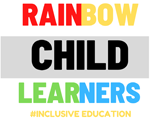
Taking your special need child out in public can be a very important and beneficial experience for them.
Here are some reasons why:
Socialization: Being out in public can provide opportunities for your child to interact with others, including peers and adults, which can help them develop important social skills.
Exposure to new experiences: Taking your child out in public can expose them to new experiences, sights, and sounds. This can help broaden their understanding of the world around them and expand their interests.
Sensory integration: Many children with special needs have sensory processing challenges, and exposure to different environments and stimuli can help with sensory integration and regulation.
Community inclusion: Taking your child out in public can help them feel included in their community and develop a sense of belonging.
Life skills: Outings in public can help your child learn important life skills such as communication, decision-making, and problem-solving.
It’s important to remember that outings with your special need child may require some extra planning and preparation, and that every child is different. With patience, understanding, and a willingness to adapt, you can create positive experiences for your child and help them develop important skills for life. Also remember that you and your child have the right to be in public spaces and should not feel ashamed or embarrassed. By being prepared, advocating for your child, and educating others, you can help make shopping with a special needs child a positive experience for everyone involved.
Shopping with a special needs child can be challenging, but there are ways to make the experience smoother and more positive. Here are some tips for dealing with people in public while on a shopping spree with a special needs child:
1. Be prepared: Before you head out, make a list of the items you need and plan your route to minimize the amount of time you’ll spend in the store. This can help reduce stress and potential meltdowns.
2. Advocate for your child: Don’t be afraid to speak up if someone is staring, making comments, or otherwise making you or your child uncomfortable. Be firm but polite in letting them know that your child has special needs and may require extra time or accommodations.
3. Educate others: Many people may not be familiar with special needs and may be curious or confused by your child’s behavior. Take the opportunity to educate them and help them understand that your child is not misbehaving, but simply has different needs.
4. Use visual aids: Visual aids such as pictures, symbols, or a communication device can help your child understand what’s happening and reduce anxiety. You can also use visual aids to communicate with others if your child is non-verbal.
5. Take breaks: If your child is feeling overwhelmed or overstimulated, take a break and step outside or to a quiet area of the store. This can help them calm down and avoid a meltdown.
6. Stay positive: Remember that shopping with a special needs child can be challenging, but it can also be a rewarding and positive experience. Focus on the good moments and celebrate small victories along the way.
7. Celebrate small victories: Celebrate every success, no matter how small. This can help build the child’s confidence and encourage them to try new things.
![]()
